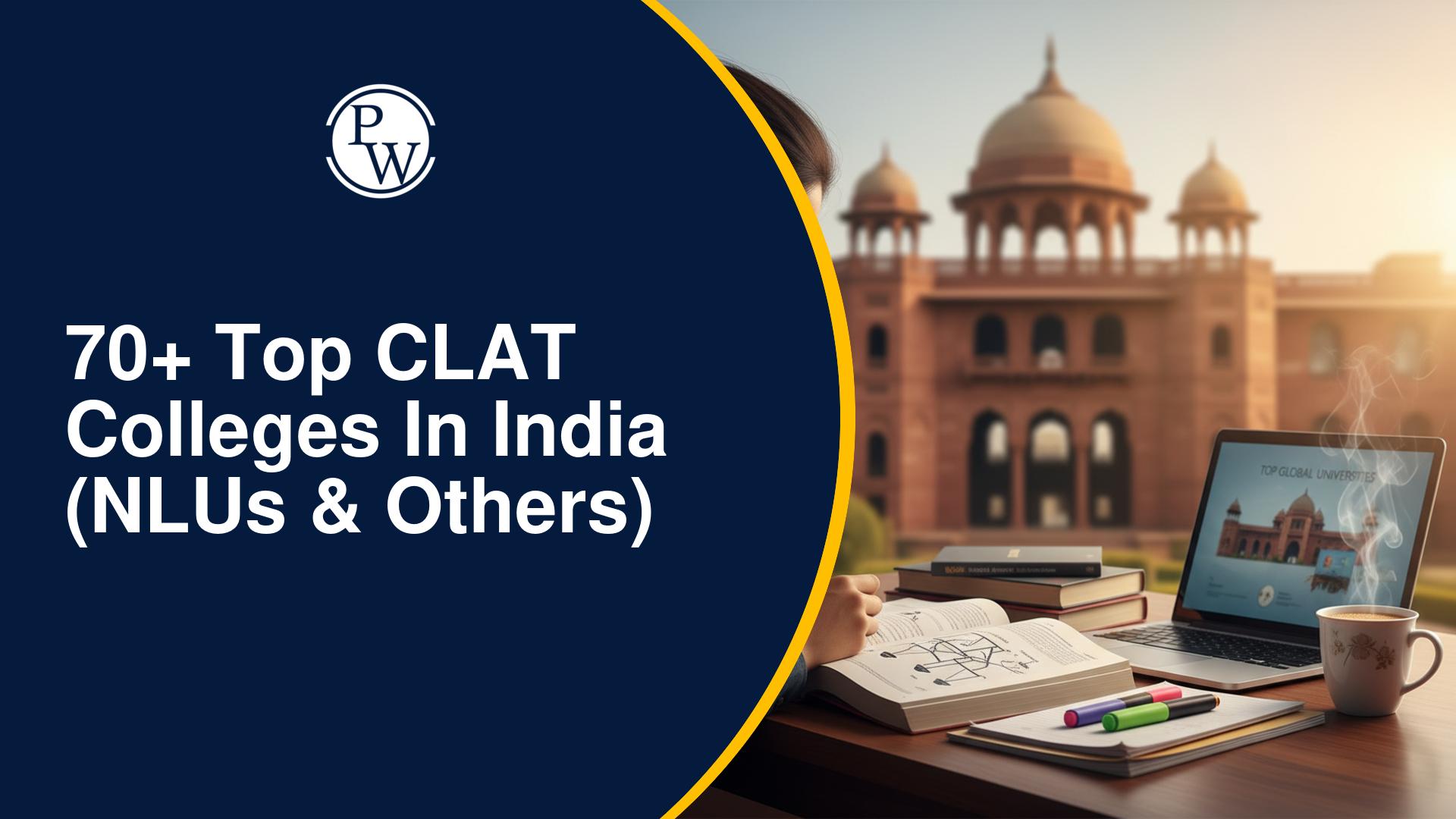
Difference Between 3 & 5-year LLB courses: Studying law is very popular, and many students want to learn about it. But it's not easy for law students to decide which degree to choose. Law is super important in our legal system, which is the basis of our democracy. LLB means Bachelor of Legislative Law. You can finish LLB in three or five years. If you do a three-year LLB, you get a degree focused on law subjects. But a five-year LLB combines law with arts, humanities, commerce, science, or engineering. This article will help you understand the differences between the 3 & 5-year LLB courses Integrated programmes.
A 3-Year LLB Degree
The Bachelor of Legislative Law (LLB) is a popular choice among students aspiring for legal careers. The 3-year LLB degree is a traditional law course pursued after graduation, regulated by the Bar Council of India and offered by reputable colleges in India. Here's an overview of the 3-year LLB degree:
- Eligibility Criteria: Candidates must have completed their graduation from a recognized university. Minimum aggregate marks required may vary by college.
- Curriculum: The 3-year LLB curriculum covers various subjects like criminal law, IPR, labor laws, family law, constitutional law, and more, spread across six semesters.
- Career Opportunities: Graduates can become lawyers, legal advisors, consultants, analysts, assistants, or researchers, working in law firms, government agencies, corporations, and NGOs.
- Course Fee: Fees range from INR 50,000 to INR 5 lakh, differing among colleges.
- Top Colleges: Notable institutions offering the 3-year LLB degree include National Law School of India University, Bangalore, Faculty of Law, University of Delhi, Symbiosis Law School, Pune, Indian Law Society's Law College, Pune, and Government Law College, Mumbai.
- Entrance Exams: Entrance exams like PU LLB, DU LLB, and MH CET Law are conducted. Exam patterns, syllabus, and preparation methods vary.
A 5-Year LLB Degree
The Bachelor of Legislative Law (LLB) is a popular choice for students aspiring to enter the legal field. The 5-year LLB degree is an integrated program, blending undergraduate studies with law courses. Regulated by the Bar Council of India (BCI), it is offered by esteemed colleges across India. Here's what you need to know about the 5-year LLB degree:
- Eligibility: Candidates should have completed their 10+2 from a recognized board. Required marks may vary.
- Curriculum: The 5-year LLB curriculum includes both undergraduate and core law subjects, spanning ten semesters.
- Career Paths: Graduates can pursue roles like lawyer, legal advisor, consultant, analyst, or assistant in government agencies, law firms, corporations, or NGOs.
- Fees: Costs range from INR 1 lakh to INR 8 lakh, varying by college.
- Top Colleges: Prestigious institutions offering the 5-year LLB degree include National Law School of India University, Bangalore, Faculty of Law, University of Delhi, Symbiosis Law School, Pune, and Indian Law Society's Law College, Pune.
- Entrance Exams: Common exams include CLAT, AILET, LSAT, and SET. Exam patterns and syllabi differ.
- Advantages: The 5-year LLB program provides a comprehensive legal education, diverse career options, and a deeper understanding of core subjects.
Difference Between 3 & 5-year LLB Courses Integrated Course
Deciding between the traditional 3-year LLB course and the 5-year LLB integrated course can be challenging for aspiring legal professionals. The 3-year LLB course follows graduation, focusing solely on law-related subjects. In contrast, the 5-year LLB integrated course merges undergraduate and postgraduate studies, offering both an LLB and an undergraduate degree. The integrated course provides a broader educational experience, enabling students to explore diverse fields. While the 3-year LLB course is shorter, the integrated course offers a more comprehensive curriculum. The eligibility criteria and course fees differ between the two options. Both paths offer similar legal career opportunities, but the integrated course provides versatility, allowing students to venture into non-legal sectors as well. Students must weigh these factors carefully and choose the course aligning with their aspirations and ambitions.
| Basis | 3 Year LLB Course | 5 Years LLB Integrated Course |
| Level of Course | This LLB is a three-year undergraduate law degree. A three-year LLB is an undergraduate study that may be started after completing graduation and concentrates on the core law subjects. | This LLB curriculum is a five-year comprehensive programme. A 5-year LLB is a combined degree that includes any undergraduate programme, such as a BA, as well as the basic LLB programme. |
| Duration | 3 years | 5 years |
| Objective of the Course | The three-year LLB programme focuses on many areas of legal knowledge and culture to educate students to practice law or serve as legal professionals in the business sector, as well as practice law privately and in law firms. | The goal of a 5-year LLB programme is similar to that of a 3-year LLB programme. The sole distinction is that, in addition to core law education, the curriculum also focuses on basic graduate-level disciplines. |
| Curriculum | This curriculum will teach you the principles of law and the Indian constitution. This curriculum devotes all of its semesters and courses to law degrees. | The 5-year LLB is an integrated course that includes subjects from the graduating degree (e.g., BA, BBA, B. Com, etc.) as well as basic legal subjects. These disciplines are spread out equally over ten semesters. |
| Career opportunities | The credibility of a three-year LLB programme is determined by the institute/college where the education is taken. This means that law students should enroll in the best and most prominent law schools, which will give them a lot of professional possibilities. | In terms of career possibilities, the curriculum has the same value as the 3-year LLB programme because both are regarded as comparable. A 5-year LLB programme provides options in other fields as well as legal careers. Other than that, the benefits of this programme are similar to those of a 3-year LLB degree in terms of job prospects. |
| Eligibility | Students must hold a bachelor’s degree with a minimum grade point average of 45 per cent to be eligible for a three-year LLB programme. Admission to law schools is determined by passing scores on a variety of legal entrance tests, like the Law School Admission Test (LSAT) | Aspirants for a 5-year LLB programme must have completed 12th grade with a minimum cumulative average grade of 50%. Students seeking admission to law schools must take entrance tests such as the Common Law Admission Test (CLAT), the Symbiosis Entrance Test (SET), the All India Law Entrance Test (AILET), and a variety of other entrance exams administered by other institutions. |
| Age Requirements | LLB degree after graduating, a three-year programme that requires the student to have completed a bachelor’s degree in any area before being accepted for a three-year law degree. Previously, the Bar Council of India (BCI) imposed an age restriction of 30 years, but after receiving criticism from the Supreme Court, the BCI decided to raise the age limit to 45 years for 3-year law degrees. | A five-year LLB, on the other hand, is an integrated law programme in which students do not have to go through graduation twice, i.e. three years of graduation in any field followed by three years of law. In this scenario, after completing the course in 5 years, candidates were awarded the “BA LLB” degree. The Bar Council of India (BCI) used to have a 20-year age limit for pursuing a five-year LLB degree, but after receiving criticism from the Supreme Court, the age requirement was increased to 22 years. |
| Top Colleges | Chandigarh University (CU), Chandigarh, Punjab Amity University, Gwalior, Madhya Pradesh Aurora’s Legal Sciences Institute (ALSI), Bhongir, Nalgonda, Telangana Bhai Gurdas Group of Institutions (BGI), Sangrur, Punjab Apex University, Jaipur, Rajasthan | Guru Gobind Singh Indraprastha University (GGSIP), Dwarka, Delhi University of Petroleum and Energy Studies (UPES), Dehradun, Uttarakhand Symbiosis Law School (SLS |
Difference between 3 & 5-year LLB courses FAQs
What is the main difference between a 3-year LLB course and a 5-year LLB integrated course?
Is there a variation in the curriculum between these two courses?
What are the eligibility criteria for these courses?
Do these courses offer similar career opportunities?
Which course is more time-efficient?










